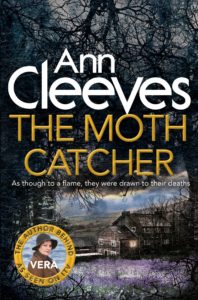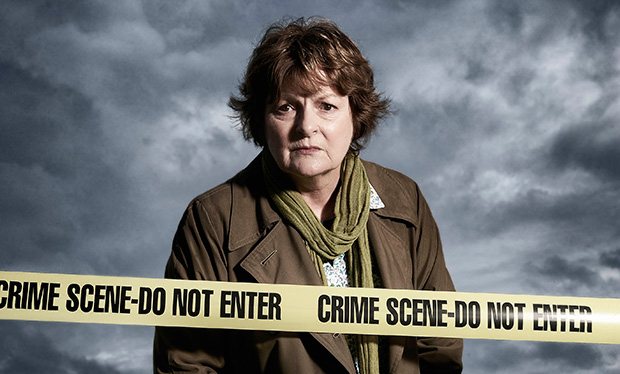Books
Like moths to the flame
“A great crime thriller? It’s in a lead character you truly believe in. Without that you’re lost, no matter how intriguing the plot”, says crime writer Ann Cleeves.
“Sometimes, action-filled writing loses something. I prefer soft, creeping tension like Andrew Taylor’s crime writing. He ratchets it up, but the tension is created out of the most subtle of disappointments, of feelings of fear, of loneliness.”
Talking to the unassuming, softly spoken Ann Cleeves, it’s easy to forget she’s one of Britain’s most eminent crime writers. She also practises what she preaches, as anyone who has read her gripping thrillers will know.
Is it too much to say she’s a natural successor to Agatha Christie? She’d certainly deserve the accolade. Like Christie, she has a knack for getting under the skin of a place, and the secrets of its tight-knit community.
 Her Shetland books are so powerfully descriptive you feel you’re right there, soaking up the bleak, wild beauty of the island.
Her Shetland books are so powerfully descriptive you feel you’re right there, soaking up the bleak, wild beauty of the island.
Cleeves’s works are not of course simply bestsellers in themselves, but have spawned two hit TV adaptations – Vera (ITV) and Shetland (BBC One). Series six of Vera, starring the sublime Brenda Blethyn, hits our screens next month, and episode three adapts Ann’s latest offering, The Moth Catcher.
An addictive addition to the Vera Stanhope series, it involves a modern take on the golden age “closed circle” mystery with an engrossing plot and enormously rounded characters – all standard issue when you’re reading Cleeves.
Set in the idyllic community of Valley Farm, Northumberland, the owners of a big country house have employed a house-sitter, a young ecologist named Patrick, to keep an eye on the place while they’re away – but the same Patrick is later found dead by the side of the lane.
When DCI Stanhope arrives on the scene, she discovers a second body in the attic. The only thing the two victims had in common? A fascination with moths, and catching them.
Does Cleeves, who is based in Whitley Bay, feel possessive over the television adaptions? Far from it, it would seem. “It’s a completely different creative process, one I have no control over”, she explains. “If anything it’s odd, a bit spooky – especially when the dialogue is sometimes word for word.”
“I know they do an incredible job bringing these stories to the small screen, and with Brenda [Blethyn], I know you’re always in good hands.
“She worked under Mike Leigh, and it shows – her attention to detail is ferocious. Her idea of Vera and mine are probably so close now they’ve melded into one and the same thing.”

The much-loved DCI Vera Stanhope (named after a village in County Durham) was actually born as a by-product of writer’s block, after Cleeves’s editor asked her to experiment with something different – a standalone, psychological novel.
The former probation officer wanted to set her story in Northumberland National Park, focusing on three female scientists carrying out an environmental survey up in the hills. One would meet her death, but there was no detective on the horizon yet – certainly not a female one with terrible fashion sense and no social graces.
“It was a novel called The Crow Trap, and I was… totally stuck!”, she recalls, fondly now. “I remembered a piece of advice then which Raymond Chandler gave to writers who’d lost their way: ‘Have a guy come through a door with a gun.’ I thought, I don’t really do guns, but it was worth a shot.
“I had the door swing open just as the funeral service was about to start. And in blew Vera Stanhope, like a gift. Fully formed and looking like a bag lady.”
And there you have it. That bedraggled vision Cleeves instantly had a backstory for (mother died when she was little, father Hector raised her single-handedly) was the beginnings of the shambolic, gruff and witty Geordie we all know and love.
The former probation officer, who works best early in the morning, from a big wooden table in her kitchen (“I can hear my husband snoring in the bedroom above me”), always comes up with something eminently worth the wait.
Right now, that something is The Moth Catcher. And we’re like moths to the flame.



Please note: Moderation is enabled and may delay your comment being posted. There is no need to resubmit your comment. By posting a comment you are agreeing to the website Terms of Use.